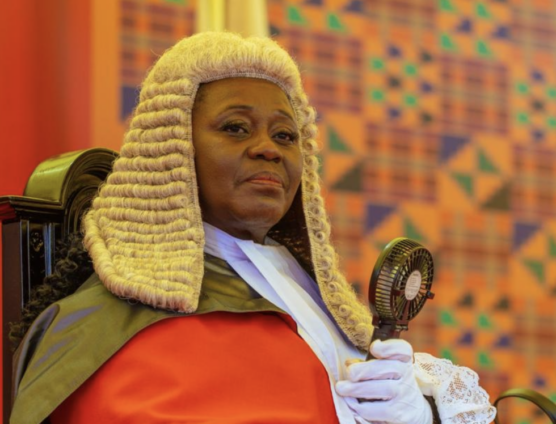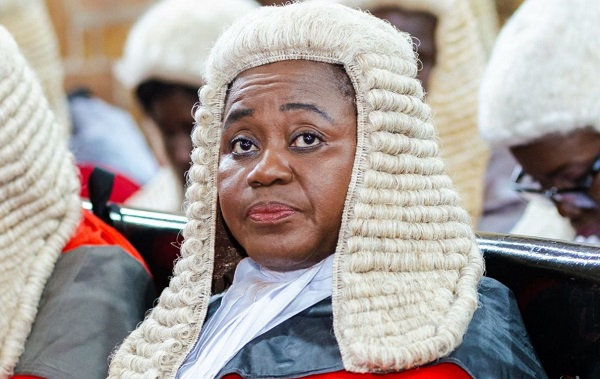
By a 4-1 majority decision, the Supreme Court yesterday dismissed an injunction application seeking to bar President John Dramani Mahama from carrying out his constitutional duty of following due process of law for the removal of the Chief Justice, Justice Gertrude Araba Torkonoo, from office.
The court, presided over by Justice Paul Baffoe-Bonnie, held that the application filed by Cences, a non-profit organization, was without merit.
Consequently, Justices Baffoe-Bonnie, Issifu Omoro Tanko Amadu, Emmanuel Yonny Kulendi and Henry Anthony Kwofie were on the majority side, while Justice Yaw Darko Asare dissented.
President Mahama had already suspended the Justice Torkonoo based on the advice of the Council of State.
Her suspension became a matter of legal tussle as this is the first time under the Fourth Republican dispensation that a Chief Justice had been suspended.
Appearing before the judges, counsel for the applicant, Mr aJacob Acquah-Samson, contends that the processes leading to the suspension of tue beleaguered Chief Justice was unconstitutional.
He urged the court to make an order directed at the five member committee set up by President Mahama to put their work on hold pending the final determination of the case before the Supreme Court.
In opposition to the argument made by counsel for the applicant, Dr Justice Srem-Sai, the Deputy Attorney-General and Minister of Justice told the court that the application was frivolous and an abuse of the courts processes.
Dr Srem-Sai told the court that President Mahama respects the Constitution 1992, and that he (President) followed the laid down constitution in triggering the process for the removal of the Chief Justice from office.
Vincent Ekow Assafuah, the Member of Parliament for Tafo Constituency in the Ashanti Region, is the first person to go the Supreme Court to stop the process of the impeachment of Justice Torkonoo,
His application for injunction had already been dismissed but the substantive action is still pending.
In this instant application, CenCes wanted the apex court to make a number of declaration, including a declaration that that under Articles 23, 146 (6), and 296 (b) and (c) of the 1992 Constitution, the exercise of discretionary power or authority by the President in determining the existence or otherwise of a prima facie case in respect of petitions for the removal of the Chief Justice ought to be regulated by a published Constitutional Instrument.
The applicant wanted the court to hold that pursuant to Articles 23, 146(6), and 296 (b) and (c) of the 1992 Constitution, the constitutional role of the Council of State in assisting the President to determine the existence of a prima facie case and to be consulted on the appointment of a Committee of Inquiry under Article 146 (6), must equally be subject to transparent regulation by a published Constitutional Instrument.
The applicant further asked the court to declare that in light of Articles 23, 146 (6) and (7), and 296() and (c) of the 1992 Constitution, the proceedings of the Committee of Inquiry established under Article 146(6) to investigate petitions for the removal of the Chief Justice must be governed by a published Constitutional Instrument which shall prescribe the procedures, scope, and limits of its discretionary powers.
CenCes is again asking for an order nullifying the entire proceedings arising from and relating to the petitions submitted for the removal of the Chief Justice, particularly, the determination of the prima facie case by the President with the advice of the Council of State, the suspension of the Chief Justice, and the establishment of the Committee of Inquiry under Article 146 (6) of the 1992 Constitution, for failing first to satisfy the provisions of Articles 296 (c) and 11 (7) of the 1992 Constitution.
The applicant also wanted the Supreme Court to give any other order(s), declaration(s), direction(s), or consequential relief(s) as the court may deem just to protect the institutional independence of the Judiciary.
BY MALIK SULLEMANA










